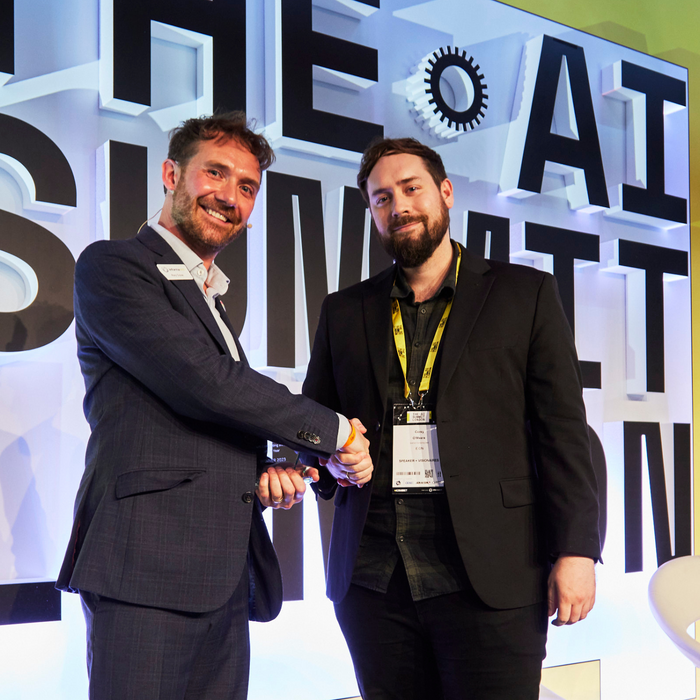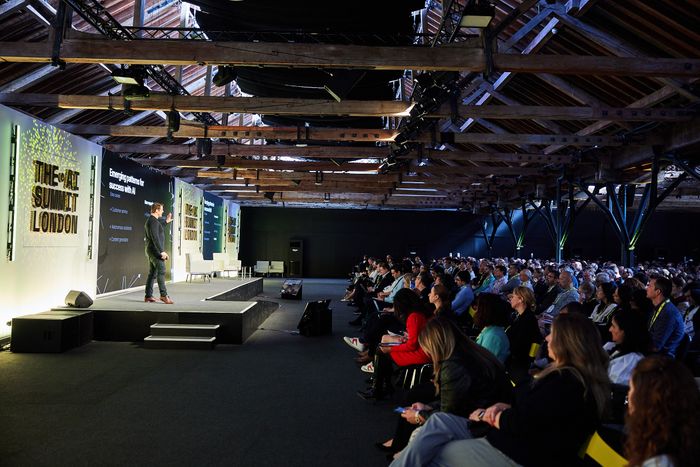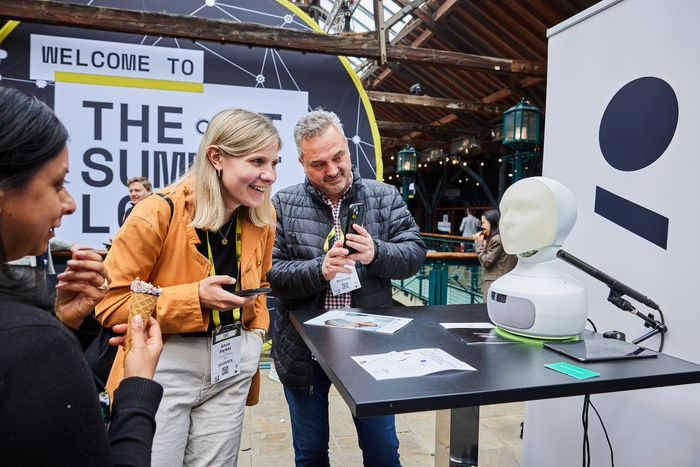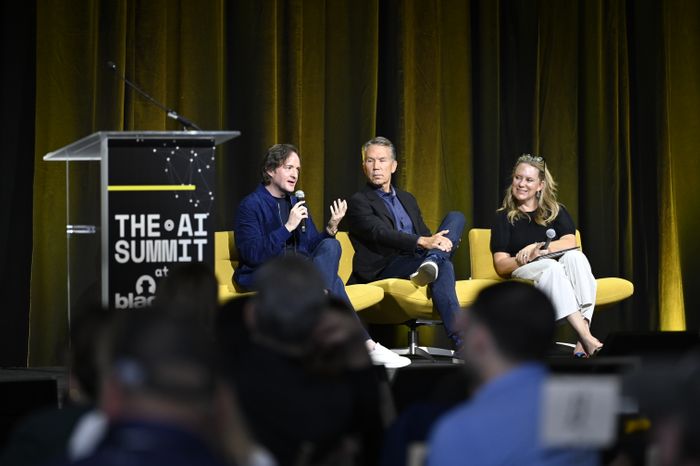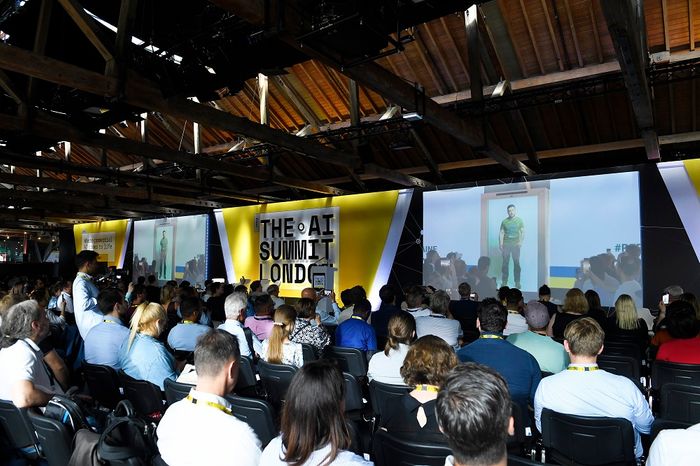Unveiling Quantum Innovations: Exclusive Insights from Dr. Corey O’Meara, E.ON’s Leading Quantum Innovator
Recognizing E.ON’s Pioneering Quantum Computing Initiatives at The AI Summit London 2023
Dr. Corey O’Meara, honored as the Quantum Computing Innovator of the Year, spotlighted the groundbreaking quantum initiatives led by E.ON. These efforts not only earned him this prestigious recognition at The AI Summit London 2023 but also propel significant advancements in the realm of renewable energy and electric vehicle management.
Honoring Breakthroughs in Quantum Computing
Receiving an AIconics Award at the AI Summit London was an incredibly exhilarating moment! This recognition is not only a personal accolade but also serves as a testament to the hard work and dedication of our team, along with the significant strides we are making in the energy industry. Our objective is to illustrate how applied research and development can reveal the tangible advantages of quantum technology in practical applications.
This award underscores several innovative projects at E.ON, particularly our collaborative research endeavors supported by the German government, focusing on the application of quantum computing to propel the energy transition. One of our key projects is optimizing the integration of renewable energy within our power grids, while also improving the scheduling of electric vehicle charging and discharging. This evolution allows electric vehicles to function as localized virtual power plants, drastically shifting from the dependency on distant energy sources.
In the future, we’re thrilled to announce a recently awarded German federal grant for a groundbreaking project titled “Quantum Mission Planning Challenges (QMPC).” This initiative will collaborate with the German Space Operation Center to develop quantum algorithms that optimize scheduling. Interestingly, we discovered that the mathematical challenges of managing electric vehicles are strikingly similar to those in satellite data transmission scheduling. By tackling these interconnected challenges, we aim to produce solutions that will greatly benefit both sectors.
Exploring Future Possibilities in Quantum Computing
The realm of quantum computing harbors immense potential for solving intricate challenges. Currently, our team, along with various industries, is striving to address complex problems that push the boundaries of traditional computing while remaining applicable to current and near-future quantum computing technologies—often referred to as “noisy” quantum computers. Although several theoretical quantum algorithms promise substantial enhancements in processing speed for certain challenges, we are awaiting the development of hardware capable of fully realizing these benefits.
Nevertheless, we identify numerous problems poised to demonstrate practical advantages over classical methodologies in the coming years. One such area of focus is Peer-2-Peer (P2P) energy trading. By connecting households equipped with solar panels and smart meters, we seek optimal methods to aggregate surplus renewable energy and supply it to neighboring homes in real-time. Crafting an efficient algorithm to navigate this challenge proves particularly complex, even within small housing clusters, which is why it is a key element of our Q-GRID initiative, supported by the German government.
Overcoming the Hurdles of Quantum Computing
The current landscape of quantum computing does involve certain obstacles. A significant challenge is ensuring the dependable execution of algorithms on existing quantum hardware, which can handle only a limited number of operations before noise interferes with the information. Thankfully, numerous innovative methods and emerging startups are actively working on quantum error correction. However, substantial investment and research remain crucial to fully unlock the potential of qubits found in contemporary quantum chips.
Confronting Ethical and Security Challenges in Quantum Computing
With the evolution of quantum technologies, it becomes vital to contemplate their implications for encryption and overall security. The ongoing discussions surrounding GenAI advancements and the potential for Artificial General Intelligence (AGI) highlight the necessity of prioritizing the ethical considerations associated with quantum computing. Engaging in proactive dialogues concerning these matters is essential for fostering responsible development and usage.
At the outset, the responsibility for ethical applications rests with quantum computer manufacturers, positioning them as key “gatekeepers.” For example, IBM Quantum has taken an admirable stance in this context, employing dedicated personnel to oversee ethical considerations related to the use of their quantum hardware. It is encouraging to observe the hardware community taking significant steps in this important direction.
The Importance of Collaboration in Quantum Computing Advancements
Collaboration is integral to our success in the field of quantum computing! Given that applied quantum computing requires a diverse range of expertise, forming partnerships is essential to address the multifaceted challenges arising within the energy sector. At E.ON, we engage closely with experts in grid and customer solutions across various business divisions, extending beyond our direct quantum team.
In addition to our internal collaborations, we actively partner with academic researchers from disciplines such as electrical engineering, mathematics, and quantum computing, working alongside prestigious institutions like the Technical University of Munich, Oxford University, Technical University of Denmark, and RWTH Aachen University. Events like the Quantum Computing Summit, held alongside the AI Summit, significantly enhance these collaborative efforts by fostering networking opportunities among companies, research institutions, and universities across the industry. These interactions pave the way for innovative opportunities and insights into new applied algorithms.
